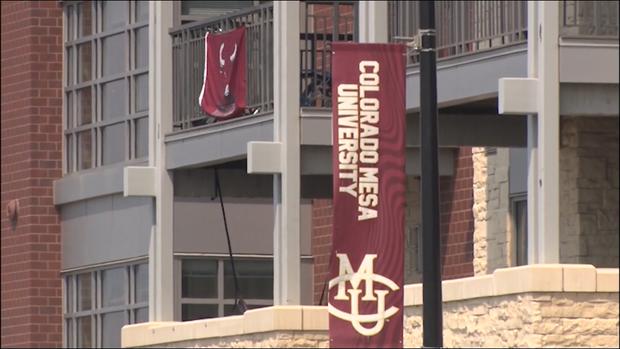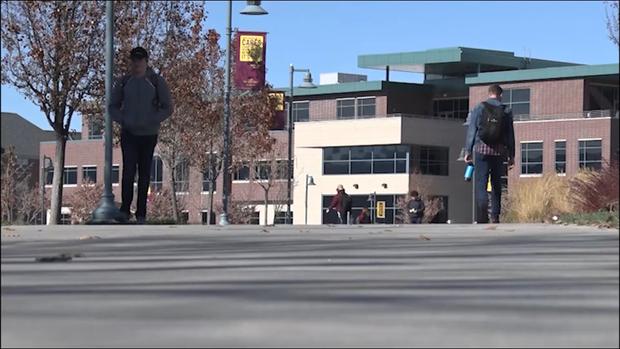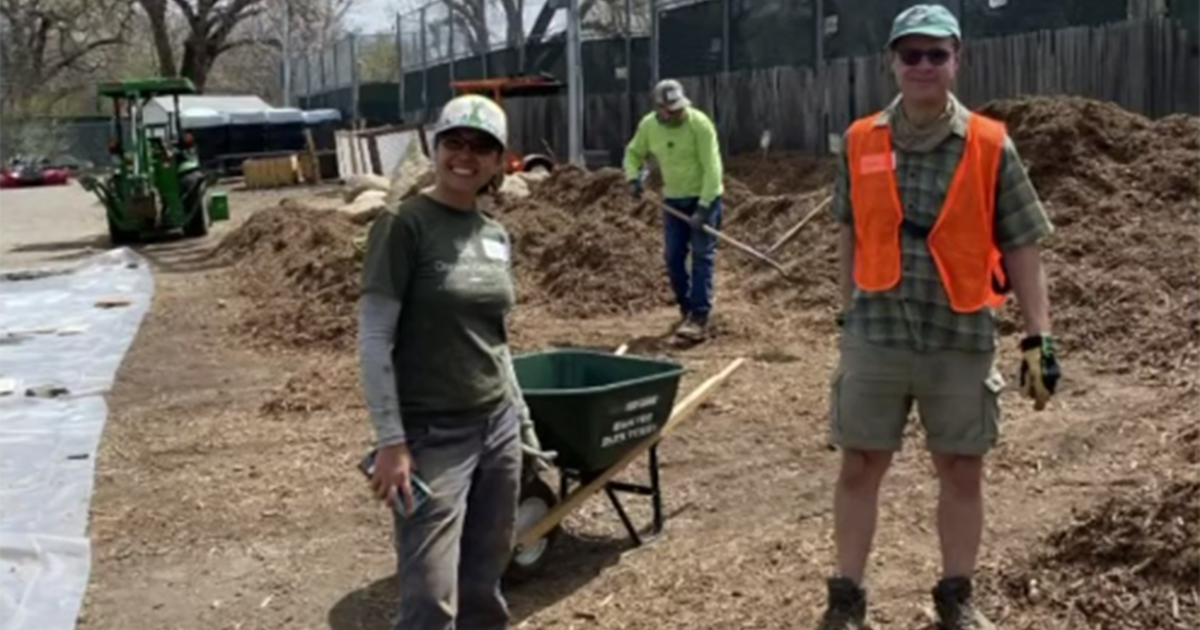Colorado Mesa University Helps Researchers Studying COVID-19 Genome
(CBS4) - Word of yet another troubling, newly discovered variant of the SARS-CoV-2 virus that could be more infectious underscored a need to get a better look at the virus and its frequent mutations.
"We are seeing new variants that are emerging that are increasing the infectivity of the virus," noted Dr. Pardis Sabeti, in talking about a COVID study taking shape at Colorado Mesa University in Grand Junction.
Sabeti is a computational biologist and a professor at Harvard University's Chan School of Public Health.
"We're really trying to understand how the viruses spread through communities and change over time," she said about the initiative at CMU, which is called "Safe Together, Strong Together."
"There hasn't been a lot published on genomic sequencing, and so there's not a lot to compare it to," noted Dr. Amy Bronson, co-chair of the program at Colorado Mesa and master of the Physician Assistant Studies Program at the University.
CMU has pulled together students and the community to get buy-in on a study in which genomic material from positive COVID tests will go to the Sabeti Lab, which is part of the Broad Institute affiliated with Harvard and MIT.
"They compare our data here at CMU, compared to those others in the phylogenetic tree," said Bronson. "So those that are in Colorado versus what's here on our campus and we can see the mutations and the differences and adaptions that have happened over time. Which can help better inform our testing strategies moving forward and diagnostics."
The initiative will also include wastewater testing and significant contact tracing of people diagnosed with COVID. CMU has also created groups which it has named, "mavilies," a combination of the school's Maverick mascot family. Those groups, which range from about five to 20 people will be tested according to risk. All students attending in-person were tested upon return to the university for the spring semester. CMU hopes to test 500-700 people a week in the mavilies and through random testing. If participants test positive for COVID they'll be asked to return to test again. Nasal Swab samples will be sent to the Sabeti Lab. CMU will also share saliva samples with the lab.
The genetic material being studied is only that of the virus, not the people with the virus, which some involved wished to underscore to assure participants of privacy. In addition, CMU is offering testing for people in close contact with students as well. Many CMU students work and live in the Grand Junction community. Dr. Bronson figures there will be about 20,000 participants. Contact tracing will help look at the path of the virus in its spread.
"That is one of the fascinating things with genomic epidemiology is how much it can help us with contact tracing and understanding the spread of the virus," said Sabeti. "To keep a campus safe you want every contact every contact of contacts, second, third fourth degree contacts to all be safe," explained Sabeti.
Bronson pointed out that the tracing will help determine, "Can really trace that back to, were they from the same strain and from the same mutation, or did those permeate from somewhere outside of our community?"
"Really, every time the virus transmits from one person to another, subtle changes may take place and it will allow us to get a sense of if there's a direct line between two infections. And if in fact how many steps are between the two infections."
Her group has been working on tools to, "Both enhance traditional epidemiology with mobile applications and dashboards to make that process go faster as well as pairing up with the genomic epidemiology. And together we think we can almost get a real time view of where the virus is and where it's moving."
In addition, researchers will ask people who get COVID about symptoms, to see if there's any relation to genetic variants they uncover.
Sabeti credited CMU with the right attitude to work with on the study.
"There's a lot of variants people are paying attention to. It would be good to know what lineage of the virus is circulating in Colorado and at CMU and so, what we're contending with."
Looking at the genome of the virus will help experts determine the best path as many worry what variants might be capable of doing next.
"Making the virus more infectious is definitely something I'm concerned about. I'm actually more concerned about making the virus more lethal, or making the virus lethal to children. You know viruses change, you don't know where they will change," said Sabeti.





